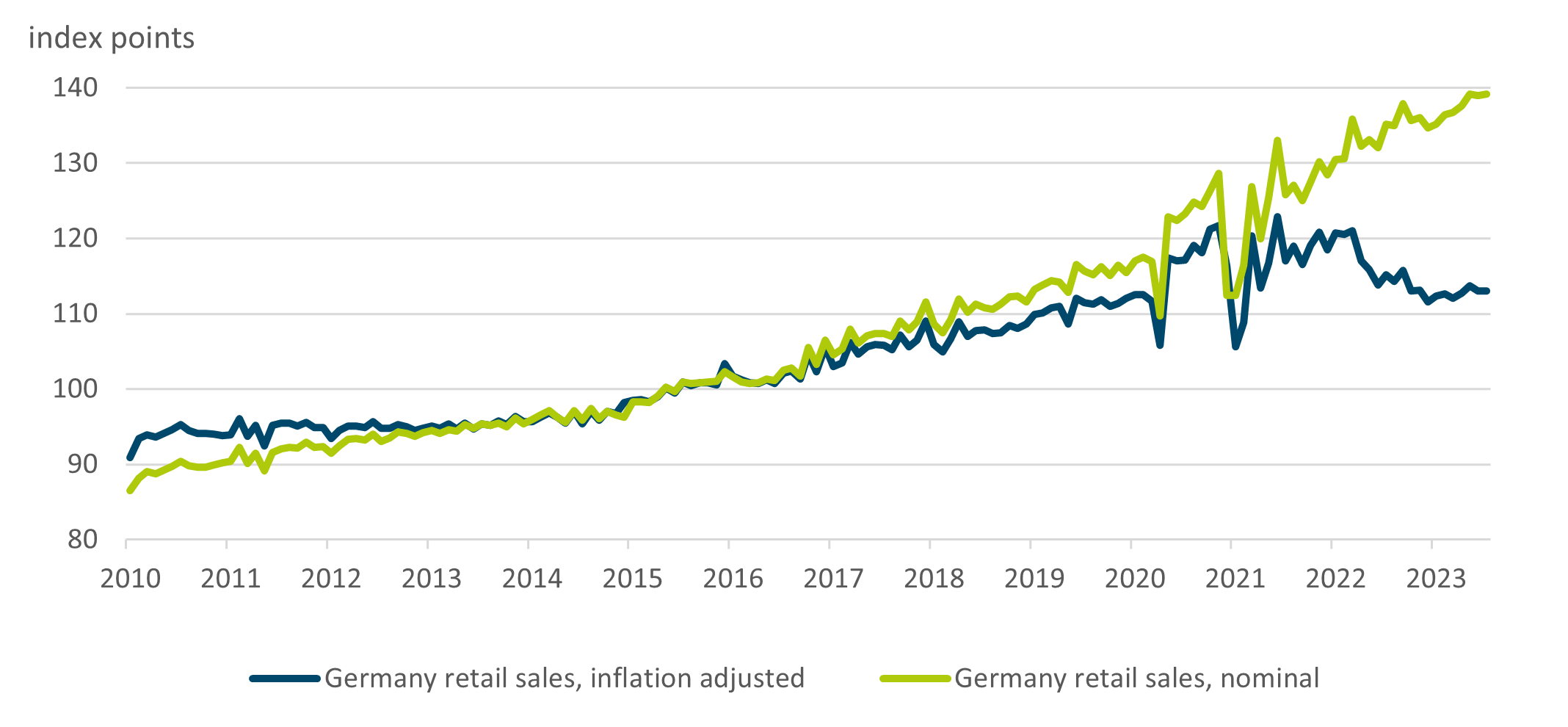- Home »
- Insights »
- Global CIO View »
- Chart of the Week »
- The German consumer to the rescue
Ten years ago, it was easy to be German Foreign Minister. You went around the world and gave everyone wise advice, whether they wanted it or not. The current minister’s tendency might be the same, but she may face a lot of resistance, and even unwanted advice for the minister herself – on how to address the energy transition, the unreliable railways, the sudden budget shortfall or even – the last straw – the national soccer team. How is the German consumer supposed to shop in an environment as bleak as this?
What makes it still worse is that Germany's growth prospects for the coming year are widely considered poor. The global weakness in the manufacturing industry is weighing on exports and high interest rates on construction investment. Investment in equipment has held up better so far than might have been expected given high interest rates. But, going forward, the gap in the federal budget and the resulting lower subsidies for environmental, digitalization and infrastructure investments are likely to slow down investment in equipment, too.
German nominal and real retail sales

Sources: Bloomberg Finance L.P., DWS Investment GmbH as of 12/12/23
So where could growth come from? German consumers are not known as great shoppers but, remarkably enough, private consumption might offer some hope. High inflation rates have caused real consumption to fall by around 1% this year, and yet the retail sector is doing splendidly – at least in nominal terms. It is growing at an annual rate of about 4%. "In real terms, of course, it doesn't look very rosy at the moment because consumers aren't getting as much for their money due to high inflation. However, very strong wage settlements suggest that German consumers should continue to have enough money in their pockets to keep retail sales growing solidly," says Martin Moryson, Chief Economist Europe at DWS.
Falling inflation rates should then generate consumption growth in real terms. In the current year, consumers have lost around 6% of their purchasing power. In the coming year it should be less than half as much and in real terms, private consumption should grow by just under 1%. That wouldn't be too bad for the German retail sector and the German economy. Following the presentation of the federal government's revised draft budget for 2024, however, we are doubtful that this 1% in consumption growth will be enough to compensate for the negative impetus from companies that are now being deprived of the subsidies and other help the government had been giving them.




